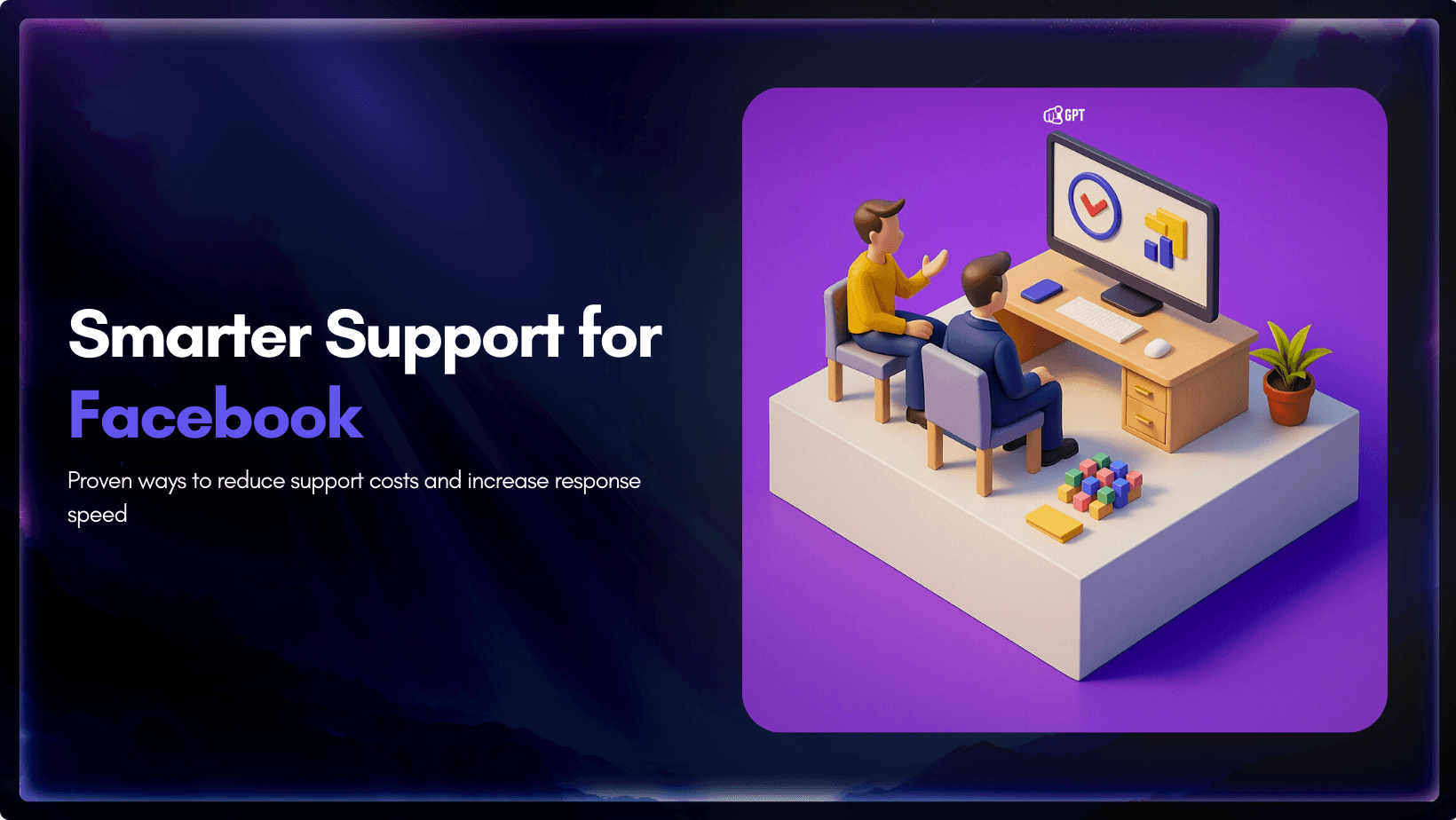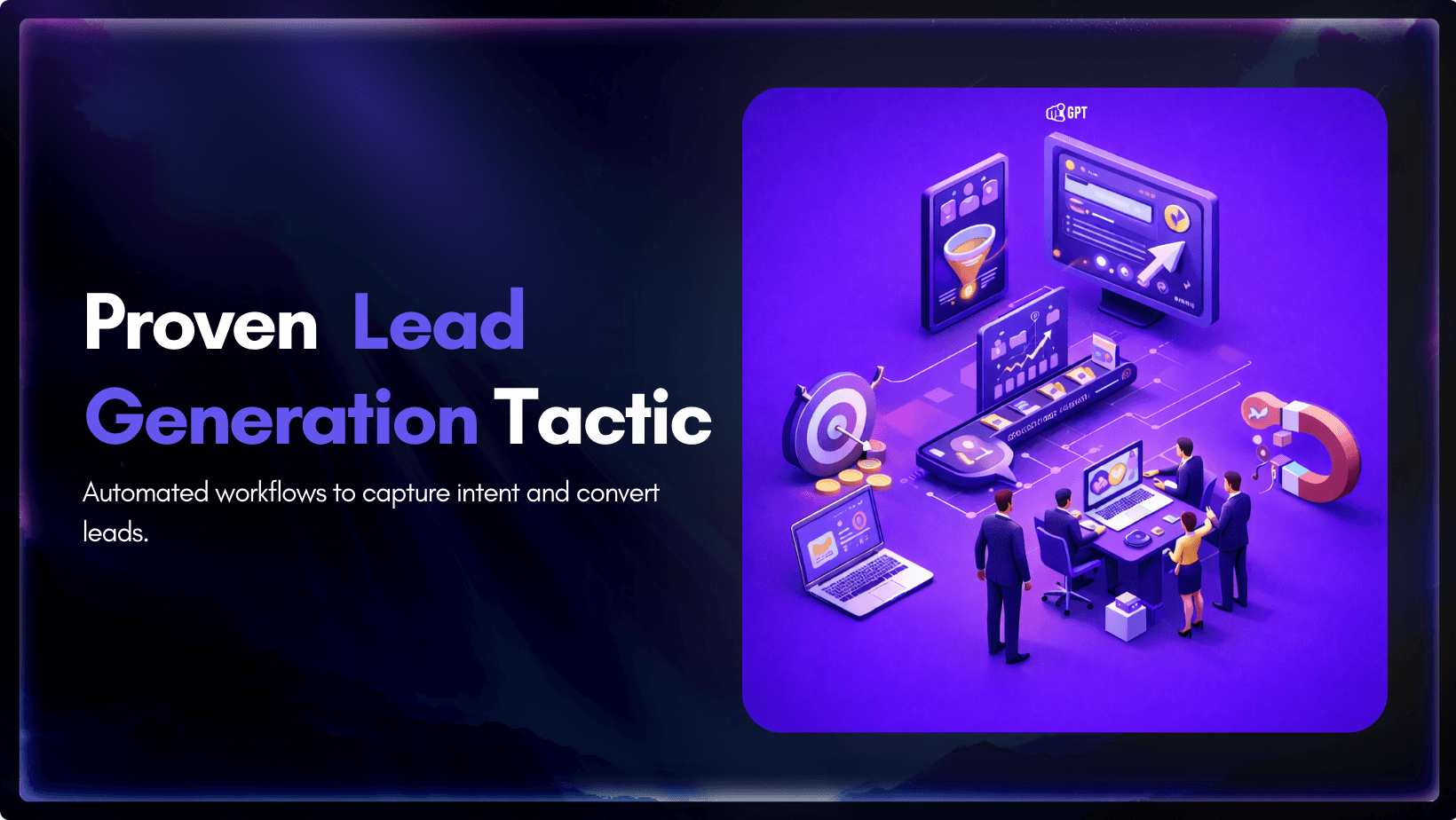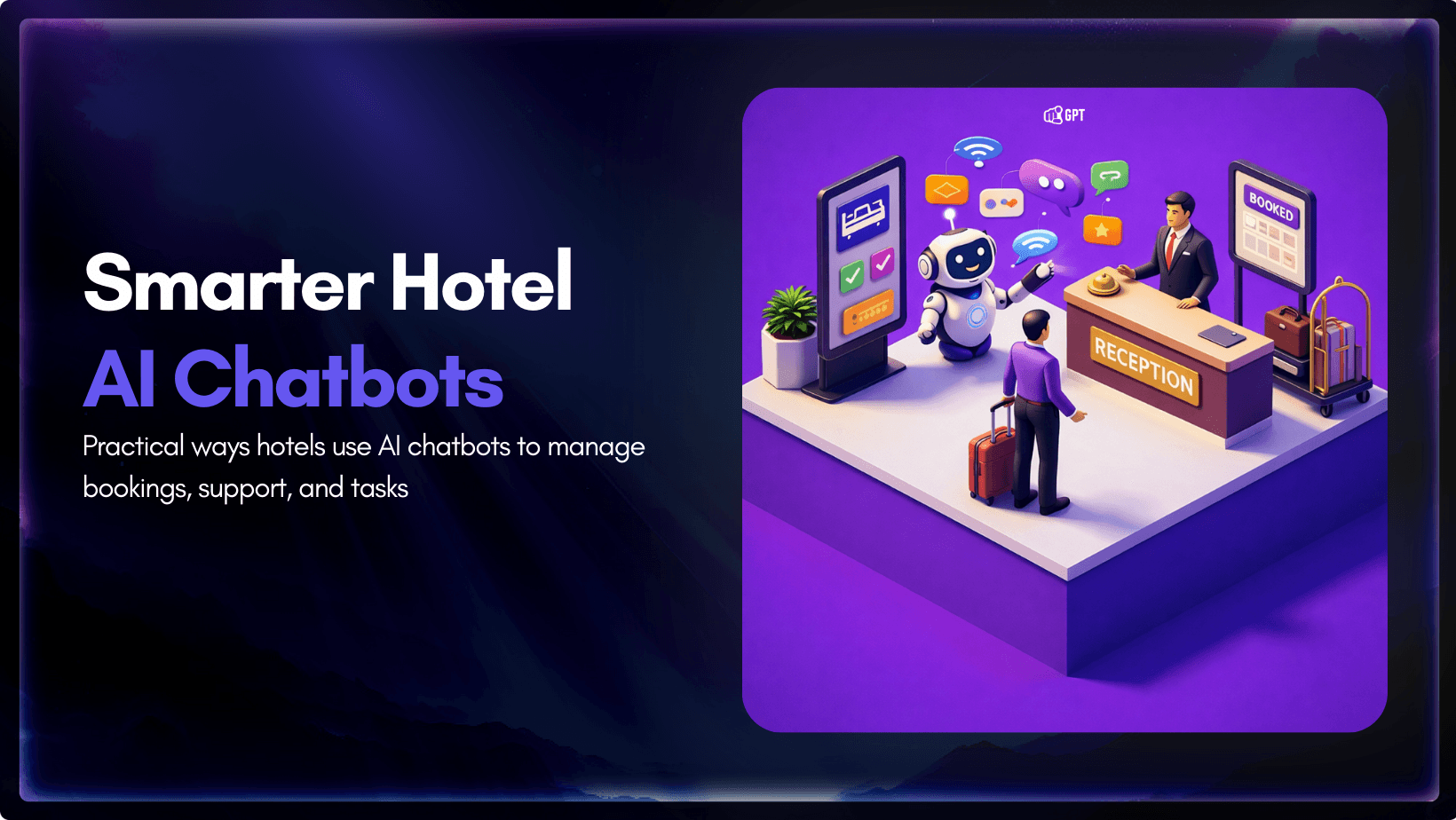Facebook Customer Support Success Guide

Facebook is still the world’s most-used social platform, with over three billion people active each month. People from every continent use it to ask questions, share feedback and connect with businesses. For many, a Facebook message or comment is now the first step when they need help.
when customers contact businesses on social media, they typically expect a response within a day. Many will search for other options if they do not receive a prompt response. Because of this, Facebook is an important platform for customer service in addition to marketing.
This blog helps you manage customer service on Facebook Messenger. You’ll learn how to implement AI, keep track of conversations, and build trust with your audience. Following these tips will improve your service and make your brand stand out.
Why Facebook Is a Good Channel for B2C Support
Facebook offers real benefits for businesses that sell directly to consumers. It provides a simple way to connect with people who need help with products or services. Below, are some of the main reasons with clear examples.
1. Wide Reach to Everyday Users
Facebook has billions of users worldwide who check it daily. For B2C businesses, this means you can reach customers without extra effort.
For example, a clothes store can quickly answer queries about returns or sizes. This immediate access helps fix problems quickly and keeps consumers satisfied—something that can be greatly improved when paired with a multilingual chatbot.
2. Simple and Private Messaging
The Facebook Messenger feature lets customers send questions in a private space. They can describe their problem with text or photos and get a response at their own pace. This is useful for B2C support, like helping someone track an order or fix a product issue. It feels personal and reduces wait times compared to other methods.
3. Easy Integration with Daily Life
Customers often see your business while scrolling through their feed. They can ask for help without switching to another site or app. This convenience matters in B2C, where quick answers can lead to repeat purchases.
For example, a food delivery service can answer a question about the menu right away, which makes the whole experience better. Integrating your AI agent with a system like Zapier allows automation for such tasks across platforms.
By using Facebook this way, B2C businesses can provide support that feels reliable and close at hand. This approach not only fixes problems but also strengthens customer relationships over time.
Common Facebook Customer Service Mistakes and Practical Solutions
Managing customer service on Facebook can be challenging, even for experienced teams. Missed messages, slow replies, and inconsistent communication often lead to customer dissatisfaction and loss of trust.
Below are some frequent Facebook customer service mistakes and how to address them:
| Problem | How to Fix It |
|---|---|
| Missed messages | Set up a unified inbox to manage Messenger. This helps your team avoid missed interactions and respond to all customer queries from a single dashboard. |
| Slow response time | Establish clear internal targets for response times. Use AI for routine questions so customers receive prompt answers, even outside business hours. |
| Repetitive manual work | Implement AI or automated workflows to handle frequently asked questions and collect basic details from customers. This saves your team time and ensures consistent service. |
| Inconsistent brand tone | Create standard reply templates that reflect your brand’s voice. Train your team to use these templates so all customer communications feel consistent and professional. |
| Lack of customer context | Integrate your Facebook support tools with a CRM. This gives agents quick access to past conversations and helps them provide more relevant, personalised support. |
Addressing these issues improves customer satisfaction and makes support operations more efficient.
By applying these solutions, your team can deliver faster, more reliable customer service on Facebook and maintain positive relationships with your audience.
Benefits of Using AI for Facebook Customer Support
AI helps businesses handle Facebook support more easily. Not only does it save time, but it also helps you get more leads, make more sales, reduce workloads and improve your overall performance.
Here are the main benefits of adding AI to your Facebook customer service:
- Lower support costs: AI handles routine questions so your team can focus on cases that need personal attention. This helps you keep support costs in check.
- Faster response times: Customers get instant answers to common questions, instead of waiting for a reply. This speeds up the support process for everyone.
- Better customer experience: Simple issues get resolved right away, which leaves customers more satisfied with your service.
- Higher lead capture: AI can collect details from interested users and qualify leads automatically, making sure you never miss an opportunity.
- Consistent brand communication: Every response from AI follows your brand’s tone and guidelines, so customers always get the same quality of information.
To ensure better accuracy, you can train your AI chatbot on your company-specific data. AI helps your business support customers more efficiently, respond faster, and deliver a smoother experience on Facebook.
Implementing AI for Facebook Customer Service in 2025
Improving Facebook customer service is critical for keeping customers satisfied and protecting your brand’s reputation. Setting up an AI-powered customer service bot for Facebook is simple with YourGPT. Here is how you can do it quickly and efficiently:
1. Create Your Account
Sign up for an account in YourGPT. The registration is simple and requires only basic information to get you started quickly. Once your account is ready, you’ll have access to the AI chatbot builder dashboard.
2. Train on Your Business Information (data)

Gather the key information your customers may ask about—such as products, services, policies, and FAQs.
Upload these details directly in the dashboard. Supported formats include text, PDFs, Word files, and more.
Organise content by topic or department to make responses more relevant.
3. Customise Your Facebook AI Bot
Set the tone and style of your bot to match your brand—formal, friendly, or neutral.
Select from the latest AI models based on your accuracy and speed needs.
Adjust settings for conversation style, creativity, and response length.
Send the AI bot a few tests to see if it gives you accurate and on-brand answers.
4. Connect the Bot to Facebook Messenger
Follow the integration steps on YourGPT to connect your bot with your Facebook page.
No coding is required. Use the provided tools to link your Messenger account in a few clicks.
5. Test the Bot in Messenger
Ask questions using Facebook Messenger to check real-time responses. Review the answers for quality and accuracy. Make adjustments in the dashboard as needed.
6. Monitor and Improve Performance
Use YourGPT chatbot analytics to track chat volume and user questions. Update your content and retrain the bot regularly to keep information current and helpful.
7. Keep Your Bot Updated
Add new content regularly and use Knowledgebase AI FAQs, products, or service updates.
Regularly review customer feedback and fine-tune your bot for ongoing improvement.
Practical Use Cases for Facebook Customer Support Bots
Facebook customer support bots help businesses deliver faster responses, lower support costs, and provide assistance throughout the day. Here are specific examples from different industries:
Ecommerce
- Order updates: Automatically send real-time notifications on order status and delivery tracking
- Product recommendations: Suggest suitable products based on customer queries
- Returns and refunds: Guide customers through the return or refund process automatically
Healthcare Clinics
- Clinic details: Share up-to-date information about clinic hours and doctor availability
- Appointment reminders: Confirm appointment times and send timely reminders
- Basic follow-ups: Share follow-up instructions or documents securely
Restaurants
- Menu information: Share menu details and daily specials with customers instantly
- Reservation management: Take reservations and send booking confirmations
- Directions and hours: Provide business hours, directions, and parking options
- Review responses: Respond to reviews quickly to maintain customer engagement
- Instant quotes: Offer estimated wait times or special event packages based on customer input
Online Education Platforms
- Course recommendations: Help students find the right course or program
- Admissions queries: Answer admissions and enrollment questions efficiently
- Support: Assist with billing issues or login problems promptly
Facebook support bots enable businesses to provide immediate, reliable support and maintain consistency, even during high-demand periods.
FAQ
How can I offer good customer service on Facebook?
Start by using a single tool to manage all Facebook Messenger interactions. Set response targets, use saved replies, and add a chatbot to handle common questions efficiently.
How fast should I reply to messages on Facebook?
Aim to respond to Facebook Messenger chats within 15 minutes during business hours. Prompt replies show customers you’re attentive and build trust over time.
Is it possible to automate support on Facebook?
Yes. You can use a chatbot to answer common questions, help customers track orders, share return policies, and more. This allows your team to focus on complex issues.
What should I do if someone leaves a negative comment?
Respond politely and acknowledge the issue. If needed, move the conversation to Messenger to resolve it privately and maintain a positive brand image.
What types of questions should my chatbot handle?
Let your bot handle shipping updates, order tracking, store hours, product availability, and refund policies. For sensitive queries, route the user to a human agent.
Do I need a chatbot to support customers on Facebook?
No, but a chatbot makes support more efficient. It helps manage repetitive queries, reduces response time, and ensures customers get answers 24/7—even during off-hours.
How can I check if my Facebook support is working well?
Review response time, resolution rates, chat volume, and customer satisfaction metrics. These indicators help you assess team performance and service quality.
Should I only focus on Messenger messages?
Messenger messages are direct and often urgent. Prioritize them to resolve customer issues quickly. Use human moderation tools outside of Messenger to handle other engagement areas.
How do I train a chatbot for my business?
Upload FAQs, product details, policies, and past customer queries to your bot platform. Organize content into topics and test with real customer questions to fine-tune accuracy.
Can small businesses manage Facebook support without a full team?
Absolutely. Small businesses can use automation, templates, and a chatbot to manage Messenger chats without hiring a full-time support team.
Conclusion
Facebook is a well-known site, and for B2C, it has become an important place for customer service. The brands that do well in 2025 are the ones who answer questions fast, give helpful responses, and keep the same level of assistance in every engagement.
AI helps support teams work smarter. It answers common questions, reduces wait times, and gives agents more time to focus on complex issues that need a human touch.
Using a platform such as YourGPT allows you to build a 24/7 support chatbot based on your actual business content. This ensures accurate responses, a consistent tone, and 24/7 availability—without adding more staff or complexity.
Every message is a chance to earn trust. Treat each one as an opportunity to deliver value, and your Facebook page will become one of your most powerful service channels.
Ready to improve your customer service on Facebook?
Start building faster with no coding to deliver more consistent support using YourGPT AI.
No credit card required • 7 days access

Related posts

18 Lead Generation Strategies & Tactics That Work in 2026



